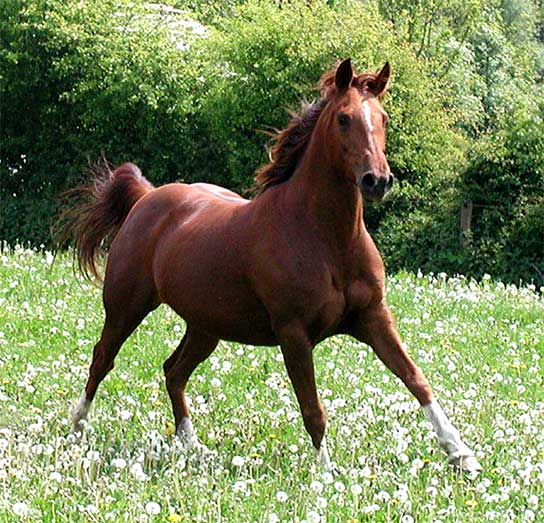| Home | About Us | Services | Insurance Claims | Products | Practice Details | Contact |
| Vettings | Castration | Prescriptions |
If you are buying a horse, a 5 stage vetting is the best safe-guard you can have that the horse will be suitable for what you want. Our practice aims to offer a vetting tailored to your specific needs. Our vets will contact you prior to the vetting to talk through any concerns you may have. (please mention these to our office staff when booking.)
A certificate will be issued detailing any problems identified with the horse and this is usually a requirement for insurance purposes.
There are two types of vettings;
- 2 stage - £
- 5 stage - £
Extra cost may be incurred for mileage if the yard is out of our practice area. Please telephone the office for further details.

We always recommend a 5 stage vetting for horses to be used for ridden work or driving. For younger horses that have not been backed the ridden part of the vetting is not possible.
In order to carry out a vetting we require the following:
- A hard flat surface for trotting away and back upon.
- A soft surface for lunging/riding
- A dark stable for the eye examination
- The horse’s passport must be present
- The horse must be stabled the night before the vetting and not turned out before we see it.
- A firm surface for lunging is advisable but not essential
- Someone must be available to trot the horse up and ride the horse. It is preferable if this is either the owner or agent selling the horse.
- The horse must be well shod or its feet properly trimmed before the vetting.
- Please ask owners to inform us if the horse loses a shoe or is injured before the vetting. We cannot vet a horse with a shoe missing.
- Suitable tack is available to lunge and ride as required.
- Please ask the vendor to have the horse clean and dry.
- If facilities are lacking please ask the vendor if there are facilities near by where the horse can be examined properly.
An average five stage vetting will take between 1 - 2 hours. The process is detailed below. Any problems found during this process will be noted and included on the certificate, we cannot and will not exclude things from the vetting certificate for insurance purposes since this would be fraudulent. That said many things mentioned on the certificate will be of no genuine consequence and would not constitute a reason to fail the horse. Following the vetting we will speak to you the potential purchaser, and run through these findings and their significance.
Often it is clear that the horse has a significant issue that will result in the animal failing the vetting, for example an obvious lameness. We endeavour to exercise a little bit of common sense in many such cases. If we feel it is a problem that needs a little input and treatment to resolve then the horse will not pass on the day but we would recommend that it is looked at again once the problem has been addressed. (A good example may be a corn, foot abscess or a kick injury resulting in lameness but with no long term consequences.) We would recommend to a vendor that they seek their vets opinion and then go back and pick up where we left off once the all clear is given. If we feel it is a more serious problem then the horse will fail. If this occurs early on in the vetting we will stop at stage two and charge accordingly. Many a purchaser has lost a good horse because it has failed for a readily resolvable lameness.
In some instances we would recommend further investigations before passing a horse as suitable for purpose. A good example of this may be a youngster with a swollen joint capsule. This may indicate underlying problems which may not be yet evident as a clinical lameness. A series of x-rays may help to determine if there is a problem within the joint. Similarly we can run off a series of x-rays should you request or require them. Typically these would include feet, fetlocks and hocks. Please be aware however this will increase the price of the vetting significantly.
A vetting will not and does not include cover against vices, (cribbing weaving etc). Whilst evidence of vices may be seen or observed at a vetting and discussed with you if noticed, often they are not seen or exhibited because there is to much going on so bad habits don't show through. We would strongly advise all potential purchasers to obtain a written and signed statement from a vendor stating that the horse has been free from vices whilst under there care.
Please inform the vendor that a blood sample will be required at the end of the vetting from their horse. This sample is collected in a sealed tube and sent to a laboratory in Newmarket for storage under a nationally organised strictly controlled system. It is not tested for substances unless requested by you at the time of the vetting or if suspicions are raised further down the line when the horse is in your ownership. Samples are stored free of charge for three months and then destroyed. Please be aware however that should testing be required it is expensive. We or your own veterinary practice would advise you on what potential substances to test for in the event of a query arising.
| Cookies | Legal | Data Protection | Log In |
Orrell Equine is registered in England and Wales, company registration number 06547469
